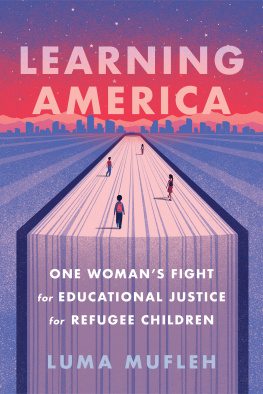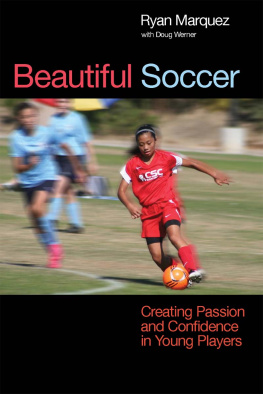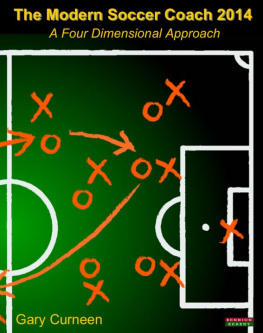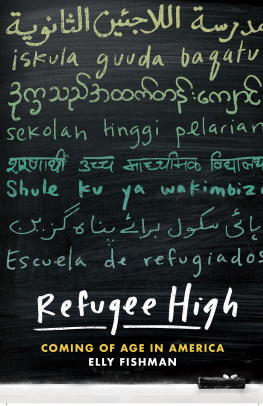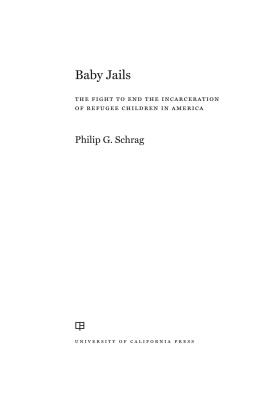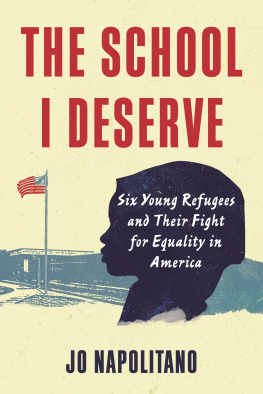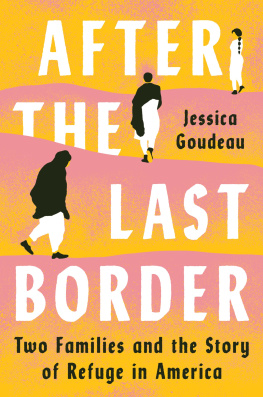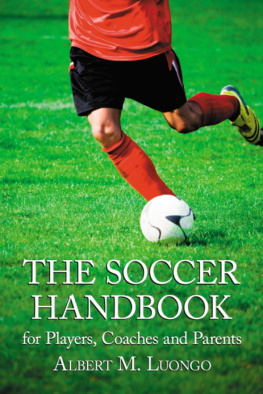For the OG Fugee, my grandmother.
And all Fugees past, present, and future.
Contents
I T WAS A MISTAKE, A WRONG TURN, THAT HAD BROUGHT ME that spring of 2004 to the parking lot of one of the many shabby apartment complexes in the refugee resettlement community of Clarkston, Georgia, twenty miles east of downtown Atlanta. Frustrated and in a hurry, I pulled in to make a U-turn. Thats when I saw themhalf a dozen boys, most of them barefoot, passing around a raggedy soccer ball with two rocks set up for a goal. Everything else around me ceased to exist.
It was like watching a home movie of my childhood, which I had spent in neighborhood streets near my home in Amman, Jordan, kicking a soccer ball between rocks, rarely stopping for water, rest, or much else. These boys were decent players, but their ball was half-deflated. A hot breeze pushed garbage beneath broken-down minivans and across the pavement, which was crumbling, its white lines faded by the sun.
Ive told this story hundreds of times, and its always a little tough for Americans to understand. But to me, there was nothing strange about approaching a group of boys in a parking lot and asking to join their game. During a pickup match of soccer in the streets of Amman, anyone who wanted to play just had to ask. For the rest of the world, soccer is a universal language, one that often spans class, racial, and religious dividesas was evident in the lot that day.
At the time, I was coaching a club girls team for the local YMCA, so I happened to have a bag of new soccer balls in my trunk. I grabbed one and started walking. The boys game slowed to a halt as they all stopped to stare at meor, rather, to stare at the ball.
Heres what they didnt say.
Who are you?
What do you want?
Heres what they did say.
Can we have the ball?
I want to play, I answered, indicating that it would be a trade.
The boys exchanged looks and gathered into a huddle. After a few long seconds, they assigned me to a side. It didnt take long to realize they had put me on the weaker team. As the game moved back and forth across the concrete, I called for a pass, and another, but no one would look my way.
Im not one for showboating, but I realized I would have to prove myself. I stepped up to one of the kids on the opposing team, stripped the ball away from him, and as another player tried to take it away from me, I put it through his legs before easily tapping the ball into the goal.
After that, they took me seriously. We played for hours. It became obvious that most of the kids spoke only a little English, words like pass and shoot and goal; they communicated mostly with hand gestures. We refereed ourselves. I played in my work clothescargo pants and a T-shirtand the boys were wearing a variety of hand-me-downs.
A few days later, at the same time in the afternoon, I drove back to the parking lot. The boys were there, with some new faces and some missing. I grabbed a ball from my car and joined the game. And so it went for weeks; I had found a piece of Jordan in the middle of Georgia.
M Y GRANDMOTHER COMPLETED THE SEVENTH GRADE. That was the end of her formal education. She was married at fifteen and a mother at sixteen. Over the next five years, she gave birth to four more children. None of this was unusual for a middle-class family in Damascus, Syria, in the 1950s.
In 1964, when my grandmother was pregnant with her sixth child, everything changed. Syria was shaken by civil unrest that was followed by a violent military coup. Soldiers occupied nearly every corner of Damascuss ancient streets. Syrians were pitted against one another: urban against rural, merchants against farmers, brother against brother. This is what a civil war does; it unstitches the fabric of a country and tears apart the colors and textures that made it beautiful in the first place.
She didnt need a diploma to know that something was very wrong now, that she could no longer keep her children safe. Call it a survival instinct or a mothers special way of knowing; whatever it was, it made herpregnant belly and allpack five children into the family car and drive away from the only home she had ever known. Only 129 miles separate Damascus and Amman, but they were the difference between life and death.
My grandfather stayed behind, believing that things would blow over, like the time before and the time before that. There had always been unrest, talk of change. There was no reason for alarm, he insisted; surely his wife and children would be back soon.
Instead, two months later, my grandfather followed the same dusty highway to Amman. His factories had been seized by the government. His brothers had been tortured. Syria was unrecognizable, a police state.
My mothermy grandmothers firstbornwas sixteen years old when the family fled to Jordan. Her whole world had been taken away: the country she loved, the extended family and the apartment building they all shared, her school, and her friends. For a while, she told herself that the move was just temporary, that they would stay in Jordan for a few months then return to Damascus; surely things would go back to normal in Syria soon. But at her parents insistence, she enrolled in school in Amman.
It didnt go well. Classmates and teachers alike mocked her French-inflected Syrian accent, her halting English (Jordan, having been colonized by the British, was an English- and Arabic-speaking society while neighboring Syria primarily spoke French and Arabic). To this day, my mother understands English perfectly well but refuses to speak it in almost any setting.
Even though Jordan and Syria share a border and many cultural similarities, my mother was immediately identified and treated as other, as different, as less than. At first, she fought back. She told her classmates that Syria was the better country anyway.
Then why dont you go back? they retorted.
After a few months, she refused to go to school. My grandparents didnt know what to do. They werent going to let her drop out. They were committed to making sure every one of their children had an education, something fairly rare in the region at that time.
Please go to school today, it will get better, just give it time, they begged.
It wont. I hate it here. Why cant we go home? Please, lets go home.
My grandparents were torn. My mother was unhappy, but she was safe. She was in school, but she was not learning. They had made it out of Syria, unlike so many of their neighbors, but would they ever truly belong in this new place?
They eventually gave in and sent my mother back to Syria to finish high school. She would live with her aunt for two years until she graduated and returned to Jordanthat was the plan. For a brief moment, things were as good as they could be for her. She was without her siblings and her parents, but she was home. She returned to her beloved Catholic school, overjoyed to see the teachers and friends she had left behind.
My mothers reclaimed normalcy was short-lived. The regime soon began shutting down all nongovernment schools. She remembers standing on the playground as she watched armed soldiers march the nuns out of the buildingas if they were criminals, these women who had taught her how to read and write. She remembers the moment when she and her classmates ran to them, begging them not to go. The soldiers tried to place their rifles between the girls and the nuns, but the teenagers would not be deterred. They were determined to say goodbye at least. Syria would never be the same.
I was born in 1975 in Amman, a place constantly in the cross fire of regional violence. I dont remember a time during my childhood when there wasnt a conflict swelling or a war unfolding in a bordering country. Because of my familys wealth and Jordans good relationship with the United States, we enjoyed some semblance of normalcy. But the drums of war always beat steadily in the background, and we knew implicitly that our lives could be upended overnight.

